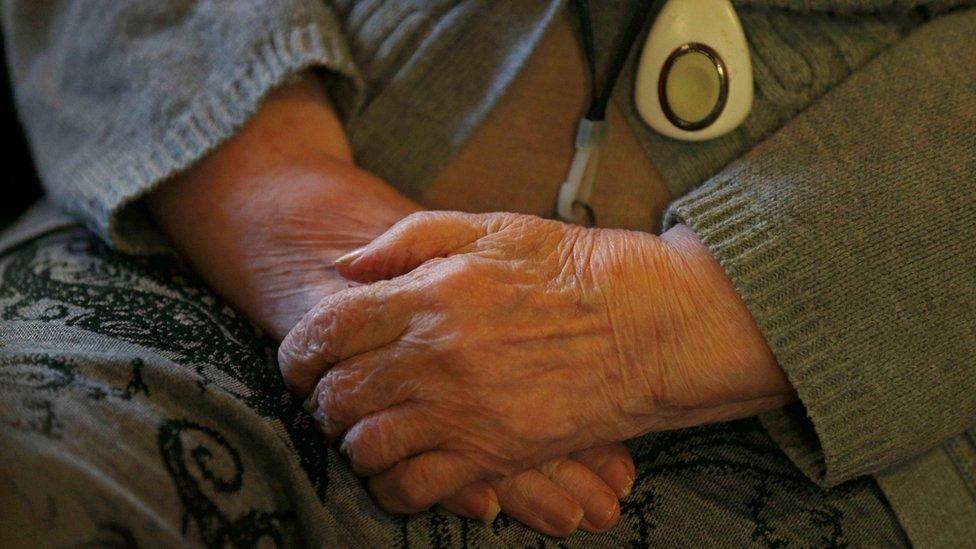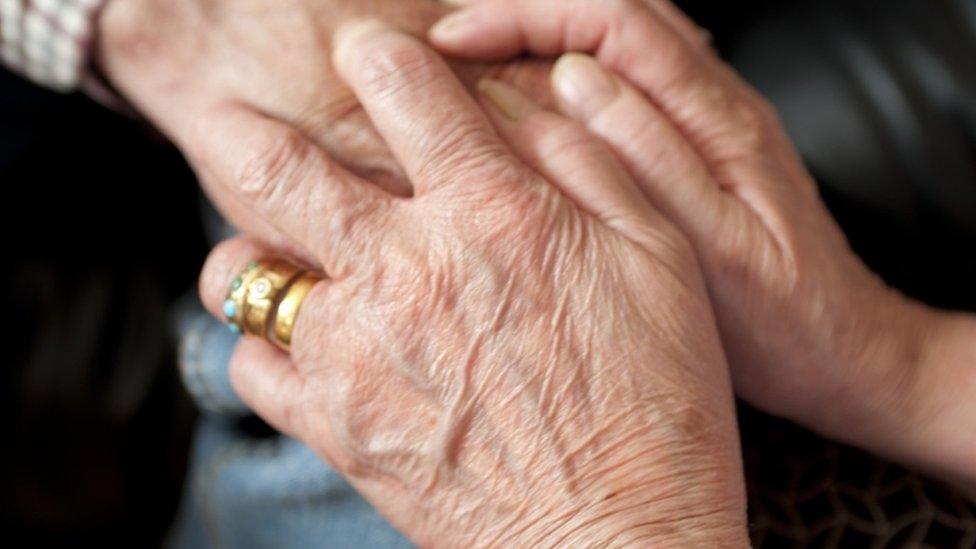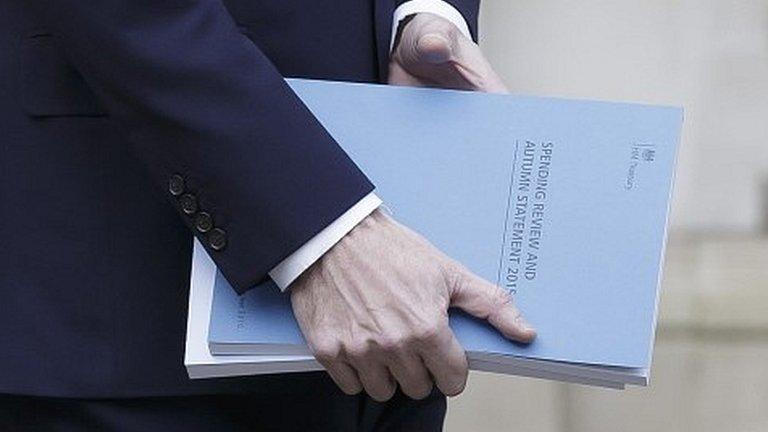Social care 'at breaking point' despite council tax rises
- Published

Care services for elderly and disabled people in England are "at breaking point" and planned council tax rises are not enough to cover the growing costs, local authorities are warning.
Nine out of 10 councils say they expect to increase bills by 2% from April to boost social care funding.
But the Local Government Association says, external rising demand and the new National Living Wage will absorb most of the cash.
Ministers insist supporting those most in need is an absolute priority.
The findings come as a ComRes survey for BBC 5 live suggests three quarters of people in England and Wales do not want local authorities to cut social care spending and are happy to pay more in council tax to enable payment of the National Living Wage, external, which represents an increase of 50p per hour over the existing National Minimum Wage.
Social care covers a wide range of services, from help in the home to eat, get dressed or move around, to day centres and residential care.
Demand is growing enormously - official figures show, external the number of people aged over 85 increased by 30% between 2005 and 2014.
The LGA says there will be a shortfall of more than £2.9bn in care services by 2020, and despite the power - granted by the chancellor - to raise more money from council tax, cuts in other areas will mean extra money must still be found.
'Care home crisis'
"The quality and quantity of services on offer could drop," LGA vice-chair Councillor Nick Forbes said.
"Councils will continue to do all they can to maintain the services that older and vulnerable people rely on, but services supporting the elderly and disabled are at breaking point. It cannot be left to council taxpayers alone to try and fix them.
"Vital social care services will increasingly be unable to help ease the growing pressure on the NHS and the threat of a care home crisis is still very real."
The warning was echoed by Labour, who said government plans to fund social care were "completely inadequate".
"The significant shortfall in social care funding is going to leave many local authorities unable to raise enough money from a 2% council tax increase to cover rising costs, particularly in more deprived areas," the party's spokeswoman Barbara Keeley said.
The LGA recently found that 90% of councils in England are considering, or have approved, plans to raise council tax next year - costing taxpayers on average £24 a year for a Band D property.
The move will raise about £372m a year, but the LGA says increases to the minimum wage - which will be replaced by the National Living Wage in April - will wipe out nearly 90% of that.
Ryan Godwin, the owner and manager of Holme Manor, an independent care home in Rossendale, Lancashire, told BBC 5 live the new money would not be enough to address "chronic under-investment over the last few years".
Top priorities
A Department for Communities and Local Government spokesman said that by 2020, councils would be receiving £3.5bn a year through the council tax rise and money available from a joint fund with the NHS.
"Supporting those most in need is an absolute priority and we have provided a £3.5bn social care package - compared to the £2.9bn councils said they needed," he said.
BBC Radio 5 live asked more than 900 adults in England and Wales to prioritise the three services they thought should be spared from funding cuts.
The highest support was for services which support vulnerable people - 74% of those asked said they wanted to protect services for the elderly, and 65% wanted to protect children's services.
There was also support for housing (29%), community safety (23%) and roads and planning (21%).
The same survey also found 71% of adults thought local authorities should increase council tax to help care home workers get the living wage.
5 live Daily with Adrian Chiles will be broadcast live from Holme Manor care home on Tuesday 23 February from 10:00 GMT to explore the issues around paying for social care. You can listen to 5 live at bbc.co.uk/5live.
- Published21 November 2015

- Published14 December 2015

- Published25 November 2015
